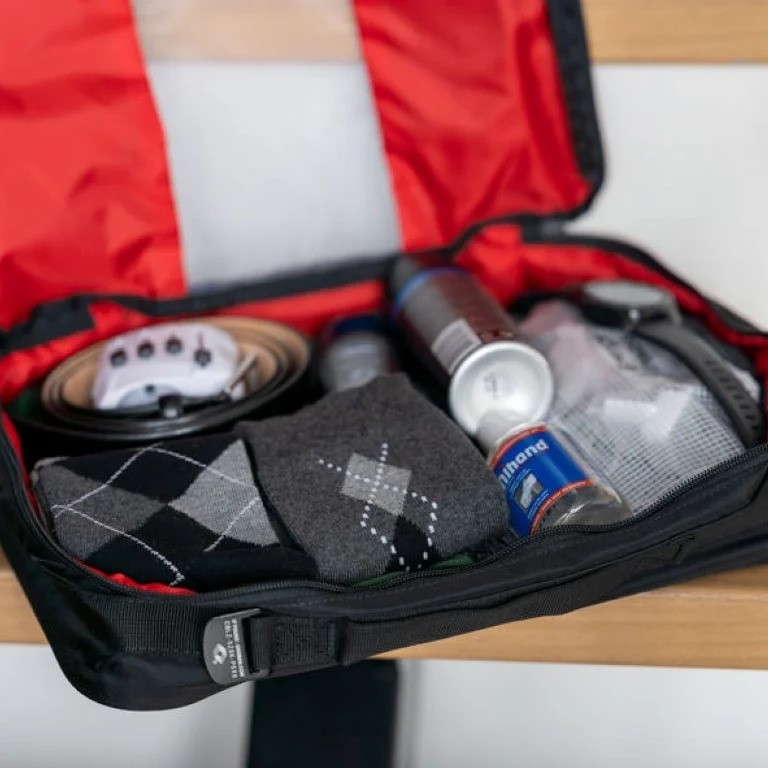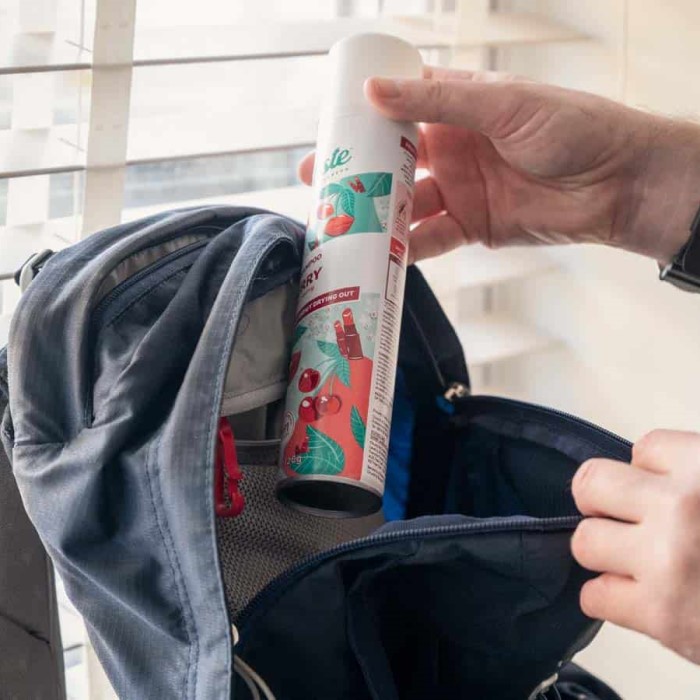Understanding the Regulations
When planning a journey, understanding what you can and cannot bring onto an airplane is crucial. The common query, “Can you bring pepper spray on a plane?” highlights the need for clarity around this particular item. Generally, pepper spray is classified as a prohibited item by the Transportation Security Administration (TSA) for use on flights. The TSA has strict guidelines concerning self-defense items, particularly those that can be considered weapons. These regulations are designed primarily for the safety of all passengers.

In the United States, the TSA regulation clearly states that pepper spray is banned from both carry-on luggage and checked baggage. The reasoning behind this prohibition is straightforward; pepper spray can pose a significant risk in an enclosed environment, especially an airplane cabin, where the potential for accidental discharge or misuse could have dire consequences.
Why Is Pepper Spray Prohibited?
Can you bring pepper spray on a plane? The prohibition of pepper spray on airplanes is not arbitrary; it is rooted in deep safety concerns. Pepper spray is classified as an inflammatory agent and, when deployed, it can affect emergency situations where access to clean air is crucial. If used in the cabin of a plane, it could incapacitate passengers and crew, endangering everyone on board. Moreover, the confined space of an aircraft makes the repercussions of using pepper spray much more severe compared to other environments.
Furthermore, there are concerns about the potential it has to cause panic among passengers. In the event of an emergency, the use of items like pepper spray can lead to chaos, diverting attention from managing the immediate crisis. Given such scenarios, it is clear why regulatory bodies prioritize the safety and security of air travel over individual preferences for self-defense tools.
Checking Airline Policies
Although the TSA sets forth overarching guidelines, it is equally important for travelers to check with their specific airlines for additional regulations regarding pepper spray. Each airline may have its own set of rules concerning carry-on items, and this can vary greatly depending on the airline. For example, some airlines may take a stricter stance against pepper spray than others, or they may offer different guidelines for checking luggage.
Before heading to the airport, it is advisable to visit your airline’s website or reach out directly to customer service representatives. They can provide critical information that could save you from being turned away at security. This knowledge can prevent delays and ensure a smoother travel experience.
Alternatives to Pepper Spray for Self-Defense
If self-defense is a priority while traveling, rest assured there are several alternatives to pepper spray that are allowed on airplanes. Personal alarms, tactical flashlights, and keychain self-defense tools frequently meet regulatory guidelines and can be effective in emergencies. These items can provide peace of mind without violating TSA regulations.
Personal alarms, for instance, emit loud sounds meant to scare off potential attackers and draw attention from passersby. Moreover, tactical pens often come equipped with other useful functions, such as an LED light or a glass breaker, providing multiple utilities in a single item without raising red flags at security.
The Importance of Travel Safety
Understanding the Risks
Traveling is an exhilarating experience, offering opportunities for adventure and discovery. However, it also comes with inherent risks that can range from minor inconveniences to serious safety concerns. Recognizing these risks is the first step towards mitigating them and ensuring a safe journey.
Enhancing Safety Through Awareness
One of the fundamental ways to enhance your safety while traveling is through heightened awareness of your surroundings. Being alert to your environment can make a significant difference in avoiding potential threats or dangerous situations. This involves maintaining a vigilant mindset, which means observing the behavior of those around you, noting unusual circumstances, and trusting your instincts when something feels off.
Informed Decision-Making
Informed decision-making is equally crucial for travel safety. This means evaluating the risks versus benefits of your choices—whether it’s selecting accommodations. Navigating transportation options, or exploring new destinations. By researching and gathering information in advance, you can make decisions that prioritize your safety while still allowing you to enjoy your travels.
The Role of Preparedness
Although not carrying pepper spray might seem restrictive for self-defense. It encourages travelers to embrace a more conscious and prepared mindset. This might include developing strong situational awareness, planning escape routes, or learning basic self-defense techniques that don’t involve prohibited items.
Utilizing Safety Tips
Implementing specific safety tips can further enhance your security while traveling. Simple practices like keeping your belongings close to you can deter theft and loss.
Traveling in groups also offers an added layer of safety. There’s strength in numbers, and being part of a group can deter potential threats and provide support in times of need. Group travel often leads to sharing crucial information with each other, allowing everyone to stay more informed about safety strategies.
Sharing Your Itinerary
Another vital practice is notifying friends or family of your travel itinerary. By keeping someone informed about your plans, they can help monitor your safety. This communication ensures that someone knows where you are at all times and can respond accordingly if something seems amiss. It creates a safety net that can be crucial in emergencies.
Researching Your Destination
Researching your destination is a key component of travel safety. Familiarizing yourself with local customs, cultural norms, and safety measures can significantly prepare you for your trip. For instance, understanding which areas are safer to visit or what local scams might be prevalent can enhance your overall security.
Knowledge of local emergency services, such as the location of the nearest hospital or police station, can also provide peace of mind. Being aware of the language and common phrases can facilitate better communication in emergency situations.
Adapting to New Environments
Lastly, adapting to new environments requires flexibility and a willingness to learn. Different areas may have unique risks, and your approach to safety should evolve accordingly. For instance, urban settings may present different challenges than rural ones, and understanding these dynamics can help you navigate your travels more securely.
What To Do If You Need Pepper Spray for Self-Defense
In instances where you feel that pepper spray is absolutely necessary for self-defense, consider acquiring it upon arrival at your destination. Many locales have different laws and regulations regarding pepper spray; thus, understanding and researching these regulations can ensure compliance.
Before you travel, consult local laws about the legality of carrying pepper spray. For instance, some regions allow citizens to carry pepper spray while others have restrictions. By doing your due diligence, you can avoid potential legal complications that could arise from carrying pepper spray into unauthorized areas.
Consequences of Carrying Prohibited Items
Understanding the Risks
The stakes are high when it comes to carrying prohibited items like pepper spray on an airplane. It is crucial to fully understand what these consequences entail. Engaging in the act of trying to bring such items on board can lead to a variety of severe repercussions that can impact your future travel plans significantly.
Confiscation of the Item
One immediate consequence of attempting to carry prohibited items is the confiscation by airport security personnel. Security agents are well-trained to identify items that do not comply with regulations. If you are found with pepper spray in your possession, it will be taken from you on the spot. This not only means losing a potentially valuable item but also highlights the importance of being aware of what you can and cannot bring while traveling.
Financial Penalties
In addition to losing the item itself, travelers may face financial penalties. Depending on the airline or specific airport security regulations, fines can vary widely. For instance, a first-time violation might result in a small penalty, but repeat offenses or more severe violations can lead to hefty fines. This financial burden can quickly add up, particularly if you travel frequently.
Legal Consequences
In the most severe cases, being caught with pepper spray or other prohibited items could lead to legal repercussions, including arrest. Local and federal law enforcement can become involved, and you could face charges that might necessitate court appearances. Such legal issues create significant inconveniences and can bring unwanted attention to your travel history.
Bans from Airlines
Carrying prohibited items can also result in a travel ban from specific airlines. Airlines have the right to refuse service to passengers who do not comply with safety regulations. A ban could lead to significant limitations on your travel options for future trips, forcing you to change your plans or even seek alternative transportation methods.
Impact on Future Travel
The long-term repercussions of carrying prohibited items extend beyond immediate penalties. Once you have a record of violating travel regulations, it could complicate future travel endeavors. Security personnel may scrutinize your belongings more closely in future trips. Leading to more time spent at security checkpoints and increased chances of delays.
Importance of Compliance
Finally, ensuring compliance with travel regulations is not just about avoiding penalization. It is a fundamental aspect of responsible travel. By adhering to guidelines, you contribute to a safer flying environment for yourself and your fellow passengers. Understanding and respecting these regulations ultimately fosters a culture of safety and security in air travel, making the experience better for everyone involved.
Final Thoughts on Bringing Pepper Spray on a Plane
To sum up, the answer to the question “Can you bring pepper spray on a plane?” is a resounding no. Personal safety is vital, but it should never come at the expense of violating established travel regulations. As travelers, it is essential to prioritize compliance and consider safer alternatives for personal protection.
In addition to carrying permissible self-defense tools, practicing situational awareness and following travel safety practices can greatly reduce risks. Always stay updated on both TSA and airline rules to ensure a hassle-free travel experience. Remember, safety is about more than just individual measures. It also involves contributing to the collective security of all passengers aboard.
By being informed and prepared, you can not only safeguard yourself but also promote a secure flying environment for everyone involved in your journey.





